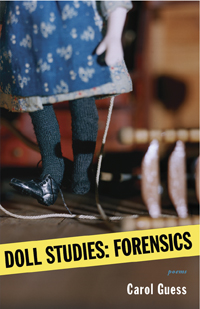Announcing Requited Journal #8
It is my pleasure to tell you that Requited #8 is now online. This issue features:
- Fiction by Thomas Mundt, Berit Ellingsen, and Matt Rowan;
- Poetry by Lucy Biederman, Carol Guess & Kristina Marie Darling, Gillian Cummings, Zachary Scott Hamilton, Kamden Hilliard, Kati Mertz, M. Pfaff, Amanda Silbernagel, and Michelle Sinsky;
- Performance pieces by Marisa Plumb, Dave Snyder, and Brian Torrey Scott;
- Visual art by Tyler Mallory (including the image you see above);
- Jeff Bursey’s review of Sam Savage’s Glass.
Check it out!
. . .
I am the non-fiction and reviews editor for Requited and am always eager to consider submissions. Previously I’ve published work by William Bowers, Jeremy M. Davies, Julianne Hill, Steve Katz, Mark Rappaport, Keiler Roberts, Viktor Shklovsky, and Curtis White, as well as interviews with Robert Ashley, Vanessa Place, Rosmarie Waldrop, and Curtis White, and reviews by Daniel Green and Jeff Bursey.
Also, please do check out the Requited‘s steadily swelling archives, where you’ll find poetry by Molly Gaudry and Nate Pritts, fiction by James Tadd Adcox, Jimmy Chen, Jac Jemc, Tim Jones-Yelvington, Suzanne Scanlon, and (ahem) myself, as well as many other nice fine things.
Enjoy!
The Feminist Peep Show
 Doll Studies: Forensics
Doll Studies: Forensics
by Carol Guess
Black Lawrence Press, 2012.
84 pages / $14 Buy from Black Lawrence Press or SPD
At the National Gallery in London, there is a ‘peepshow’ that allows one to peer into a miniature 17th century Dutch household. Made by Samuel van Hoogstraten in the 17th century, and appropriately titled A Peepshow with Views of the Interior of a Dutch House, it is a small box that looks rather plain on the outside, but has been intricately painted inside to reveal a private domestic scene. There are two holes in opposite sides of the box, through which viewers are invited to take a peek. Though nothing out of the ordinary seems to be happening inside, the peepholes create a sense of the illicit; the viewer becomes a voyeur, examining the intimate space of strangers.
The surreal and smart prose poems in Carol Guess’s newest collection function in part as sensational Dutch peepshows, and in part as feminist meditations on the aesthetics of violence. Doll Studies: Forensics takes for its subject eighteen dioramas built by forensic pathologist Frances Glessner Lee. Based on real crime scenes, Lee’s dioramas were used as tools in the study of crime scene investigation during the 1940s and 50s. The majority of Lee’s dioramas depict scenes in which women are victims of domestic violence, so the dioramas are ripe with opportunity for feminist discourse.
October 1st, 2012 / 12:00 pm

